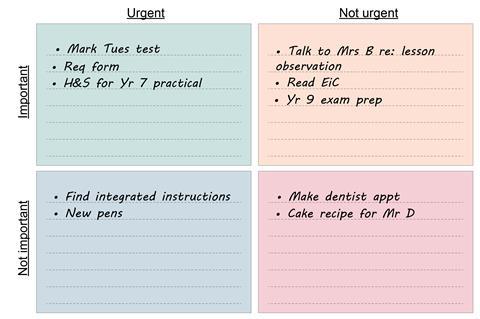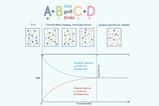Step into your classroom armed with this advice from a prize-winning, recent early career chemistry teacher

The early career years in teaching can be the hardest, but they can also be the most rewarding. I’m in my fifth year of teaching and would like to share some of what I’ve learned so far. Hopefully it’ll help you get the new academic year off to a flying start.
1. Stick to routines
Children thrive with routines because that consistency means they know what to expect in your classroom. I’ve found routine useful in a few scenarios:
- Entering and exiting the classroom – Students enter the classroom quietly and begin a starter activity straight away. Students stand behind their chairs in silence before I dismiss them.
- Handing out worksheets and equipment – Either ask a student to hand them out, or adopt the ‘take one and pass it on’ approach.
- Task expectations – At the beginning set out how much time learners have to complete the task; the conditions, whether they’re working in pairs or individually, in silence or quietly, for example; and how they can get help.
- Practical expectations – Students must wear safety glasses and stand up at all times.
2. Plan your time effectively
As an early career teacher, your timetable should have fewer teaching hours and protected time for you to do your planning. Use that time effectively.
Initially I tried to use to-do lists to plan, but I was frustrated that I never got to tick everything off the list. To mitigate this frustration, I instead use a priority grid. It helps you decide if tasks are urgent and important, urgent and not important, important but not urgent, neither important nor urgent.

As an early career teacher your workload is high, but it’s still important you find time to relax. Plan that in. Find a day and time which suits you and stick to it.
3. Practise practicals
Whether you’re joining the teaching profession with years of lab experience or not, it is imperative you practise the practicals.
Doing the experiments affords you the opportunity to anticipate (and overcome) any issues students may have and to consider the stresses on their working memory. To avoid overloading learners’ working memory, try integrated instructions. These instructions combine images and words and can help improve learners’ practical work. Another approach is to slow down and model each step before students do it themselves, rather than expecting them to watch a demonstration of the full experiment and remember it all.
4. Observe others
Take advantage of the wealth of knowledge that your department and school offer. When observing other teachers’ lessons, focus on a particular aspect. Don’t try and take in everything the teacher does. It’s overwhelming. For example, if your focus is on students completing practicals in a safe and meaningful way, take note of the steps the teacher takes to achieve this.
Many of you will identify behaviour as a focus at this stage in your career. Watch for strategies that teachers use to manage behaviour in their classrooms and speak to them too to understand exactly how they do it. If you’ve identified learners who are consistently not behaving in your lessons, but are successful in another teacher’s classroom, consider whether that teacher’s strategies could work for you.
Want a little more support?
- Why not check out the conversations between a probationary teacher and her mentor. They cover everything you could want to know in your early career.
- Discover a multitude of articles and resources to help you in your first years in the science classroom with our Support for early career and student teachers.
5. Ask for help
A meeting with your mentor is the ideal time to get advice if you’re feeling overwhelmed by your workload or with deadlines. Your mentor can help you make a plan.
Your mentor isn’t the only person you can call on for help. You can also ask other teachers. But choose your time and place carefully. Every teacher is busy so you can’t expect them to drop everything to help you. Instead ask them for a chat at their convenience. Use the time wisely, and be specific about what you’re struggling with and what you’ve tried already.
6. Be friendly, not friends
It is important students see you as approachable. Greet students as they enter your classroom, ask how they are and show an interest to make them feel welcome and put them at ease. Take advice like ‘don’t smile before Christmas’ with a large pinch of salt.
Students always push boundaries so be firm. For example, your learners shouldn’t spend their free time with you. Remember you need a break too.
Be firm and fair with your behaviour system and apply it consistently. Keep some phrases in your back pocket to maintain a relationship with your learners, while holding those boundaries firm and stopping students asking personal questions.














No comments yet